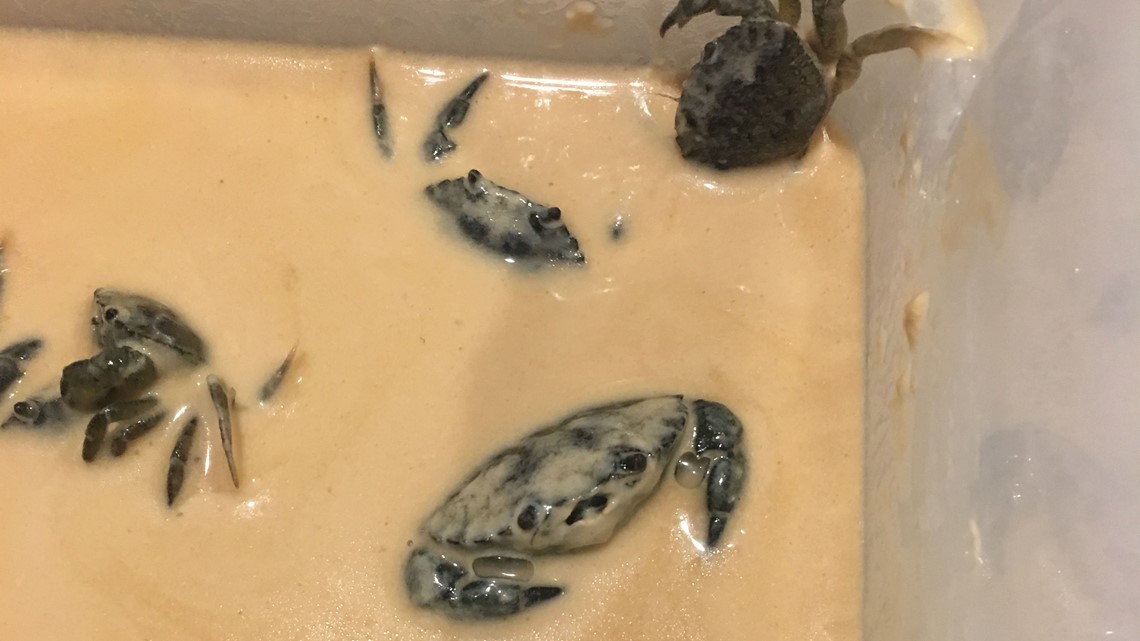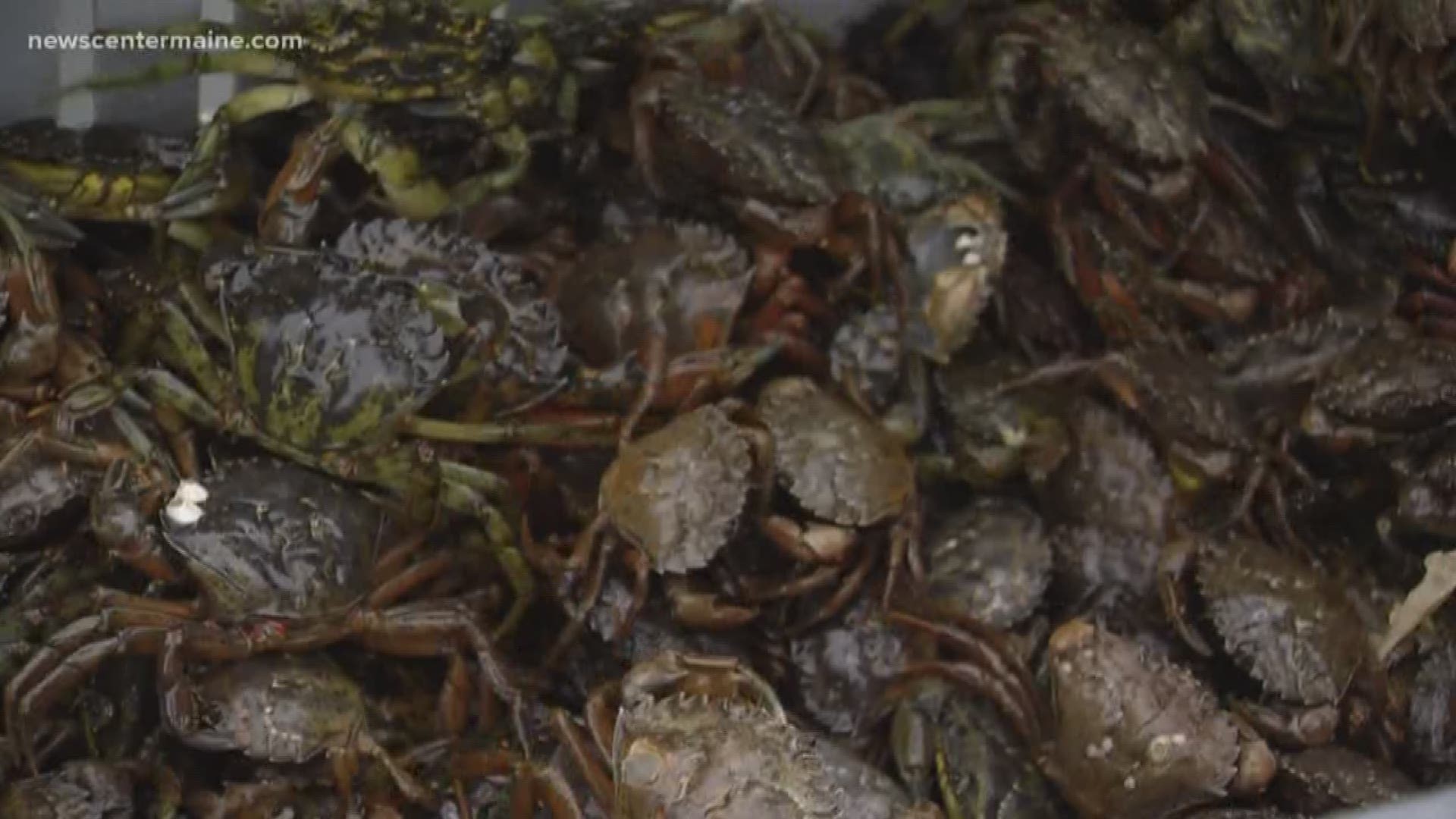GEORGETOWN (NEWS CENTER Maine)-- When it comes to the invasive green crab, some scientists in Maine have a suggestion: If you can't beat 'em, eat 'em.
"Our goal is to strengthen and diversify fisheries opportunities in the Gulf of Maine, and we think green crabs could be one of those opportunities," said Dr. Marissa McMahan, Senior Fisheries Specialist at Manomet.
McMahan has been working with students from the University of Southern Maine to study green crabs, and determine how viable a commercial fishery might be. So far, she's optimistic.
"It's an incredibly lucrative fishery," she said, adding that some fishermen have sold to local restaurants for $3 for each small crab or about $20 per pound.
"There's so much flavor there," said Ali Waks-Adams, Executive Chef at the Brunswick Inn. She has been experimenting with green crabs, making crab dip, crab bouillabaisse, crab broth, even making popcorn tempura green crabs.
"They're feisty, they're hilarious, and they have adorable little faces," she laughed. "It doesn't mean we can't eat them."
Waks-Adams describes the taste as more flavorful than a Chesapeake crab.
Removing green crabs and making money off of them could be a win-win for fishermen and the environment. The invasive species has destroyed clam beds and caused coastal erosion throughout New England. Scientists from the University of New England have been tracking an even more aggressive form of green crab migrating to Maine waters, which could do more damage.
"This invasive species has thus far only had negative impacts on our Eco-system," said McMahan. "If we can find a way to benefit from them, we really think it's a worthwhile task."
Fishermen say they are abundant and easy to trap. The only catch: it's a process to separate the soft shell crabs.
"There's so much flavor there," said Ali Waks-Adams, Executive Chef at the Brunswick Inn. She has been experimenting with green crabs, making crab dip, crab bouillabaisse, crab broth, even making popcorn tempura green crabs.


"They're feisty, they're hilarious, and they have adorable little faces," she laughed. "It doesn't mean we can't eat them."
Waks-Adams describes the taste as more flavorful than a Chesapeake crab.
Removing green crabs and making money off of them could be a win-win for fishermen and the environment. The invasive species has destroyed clam beds and caused coastal erosion throughout New England. Scientists from the University of New England have been tracking an even more aggressive form of green crab migrating to Maine waters, which could do more damage.
"This invasive species has thus far only had negative impacts on our Eco-system," said McMahan. "If we can find a way to benefit from them, we really think it's a worthwhile task."
Fishermen say they are abundant and easy to trap. The only catch: it's a process to separate the soft shell crabs.

